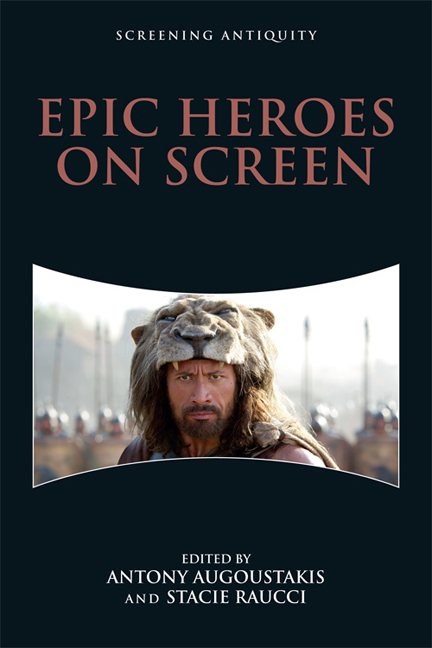12 - Trouble in the Tehran Multiplex: Xerxes, 300, and 300: Rise of an Empire in Iran
Published online by Cambridge University Press: 24 April 2021
Summary
INTRODUCTION
The bludgeoning Hollywood franchise that arose out of Frank Miller's (1998) graphic novel 300 is not alone in its fictitious use of the ancient world. The films 300 (2007) and 300: Rise of an Empire (2014) are both contributors to a longstanding tradition of Western myth-making, which gained traction in the nineteenth century. The mythology insisted that the battles between Greek citystates and the Persian empire, the so-called “Persian Wars,” were a showdown over the fate of Western civilization itself. Pre-eminent historians of the time believed that the defeat of Xerxes’ forces helped preserve the lofty Greek attributes of freedom of thought and democracy. The victory over Persia was a brilliant moment in the triumph of reason in the face of dark Eastern backwardness and sinister mysticism. This is a dubious view that some die-hard conservative scholars in the West continue to propagate to this day and such intransigent readings have, in fact, helped give voice to, for instance, the far-right, anti-immigrant Golden Dawn party in Greece, which holds ceremonies at Thermopylae, as Time reported in 2012, chanting “Greece belongs to Greeks” in front of a bronze statue of their slain hero, the Spartan king Leonidas.
There can be little doubt that 300 and its sequel's vision of muscle-bound warriors chimes with the contemporary popular taste for both a particular type of gym-bodied heroism and an ever-mounting tide of intolerance of the “others” inside and outside of our communities. In the films, the Spartans and, latterly, the Athenians fight bare-chested without armor in the “heroic nude” mode so beloved in the ideology of ancient Greece, but they are so gym-pumped with bulging muscles that they easily betray their roots in the American comic-book tradition of superheroes. Like superheroes, the burly Greeks are on a mission to save the world. In contrast, and as in antiquity, in the films the Persians are represented with covered bodies, clothed in trousers, tunics, and turbans; their bodies (when seen) are pale, weak, even deformed. They too have a mission: to follow their master, Xerxes, end freedom, and bring about his reign of terror.
- Type
- Chapter
- Information
- Epic Heroes on Screen , pp. 191 - 205Publisher: Edinburgh University PressPrint publication year: 2018

